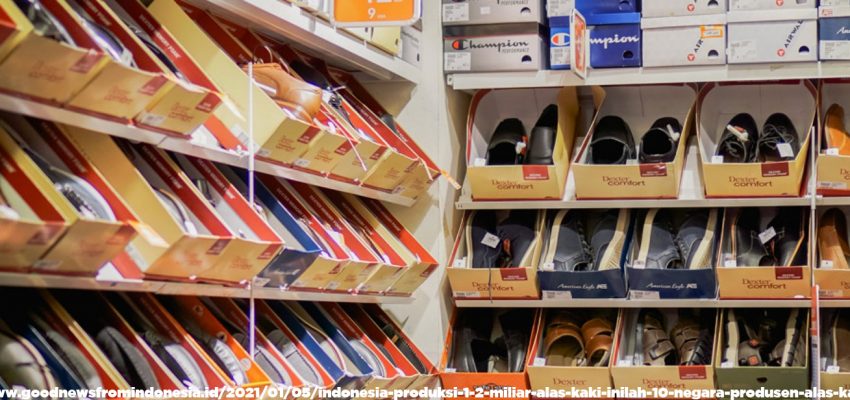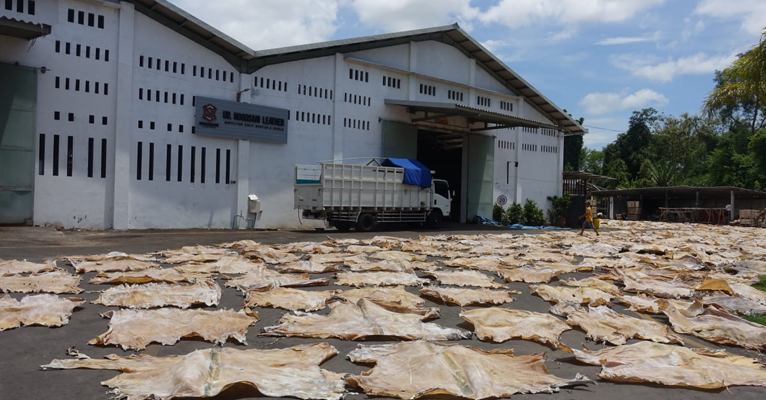Kompetisi Indonesia Footwear Creative Competition (IFCC) 2024 kembali menghadirkan talenta-talenta kreatif terbaik di bidang fotografi,…

TIPS FOR FOOTWEAR SMEs RECOVERY FROM PANDEMIC
Alfiyan Darojat
Staff Tata Usaha
Here are the Tips for Footwear SMEs Recovery from the Pandemic
SAVE THE CASH FLOW Many say that cash is the king of business. Then how to manage cash during a pandemic like this? As an IKM, maintaining production as one of the motors of the industry seems to be a lot of challenges. On the consumer side, also withhold spending due to reduced income. Downstream, the supply chain of materials and supporting materials also experienced delays. The position of IKM is in the middle of the value chain, which must be clever in managing cash flow between upstream and downstream businesses. There are at least six critical things in managing cash flow during a pandemic;
(1) Inventory management. Inventory that is too large during a pandemic can become a business burden. Likewise, too little will hinder production. So set it based on the correct projections and assumptions, especially during a pandemic.
(2) Negotiation of payments with vendors. SMEs are between two business poles that require sufficient cash flow. So during this pandemic, the time is right to communicate with vendors about payments.
(3) Acceleration of payment of receivables, While maintaining good communication and trust from customers/vendors, it is crucial to accelerate the scheduling of receivables payments to become the cash power of our business.
(4) Postponing investment in fixed assets. As well as tight inventory conditions, delaying business investment is a very realistic option during a pandemic. Investments that were previously planned can be postponed or the investment costs can be used to carry out organizational transformation
(5) Review of production costs. The decline in people's purchasing power can be momentum for production cost efficiency. Evaluate some activities that are not important in creating production value. These activities can be omitted or do an in-house or outsource option. Choose whichever is the most efficient.
NEW NORMAL – NEW CUSTOMERS AND NEW NEEDS. The pandemic forces us all to make significant adjustments that affect customer needs. The tightening of business and social activities has a significant impact on the economic cycle in society. However, there are at least three crucial things that can be done in the NEW NORMAL transition;
(1) Re-understanding the priority needs of customers. Current conditions force consumers as a society to reduce social activities directly. Then the need for goods and services related to face-to-face is reduced by 70%. This affects the pattern of consumption of goods and services. So it is important to re-understand customer needs during a pandemic like this.
(2) Building customer trust through Health protocol campaigns. When market conditions are uncertain, SMEs need to rebuild trust during this pandemic. Health sentiment is currently strengthening in society—opportunities for SMEs to build trust by using the new normal as a campaign to reclaim public trust.
(3) Product and service innovation. Many things can be done to build customer trust during a pandemic. One of them is innovation. Innovation is no longer an option but a necessity so that SMEs can survive and even grow during a pandemic. Innovation can be closely related to services, product variations, efficiency, and even new services.
NEW SUPPLY CHAIN ORIENTATION. Globally, industrial value chains are being disrupted due to the impact of the pandemic. For some SMIs, which are very dependent on material supplies from imports, it won't be easy to get material substitution quickly. For industries that must continue to produce products and services, there is no other choice but to use alternative local materials. Of course there are consequences, among others; decline in quality, production prices, and the speed of meeting late market needs. For SMEs, immediately do 5 things that can help speed up supply chain adjustments, including;
(1) Alternative local suppliers. Ready or not, SMEs must immediately look for alternative material sources from local industries. Of course, it takes time and consequences. However, this choice is a priority so that production is not disrupted. Flexibility and its consequences must be communicated to all stakeholders, including e-commerce, vendors and customers.
(2) Building relationships with new suppliers. Get a new alternative supplier for production immediately. Immediately communicate production needs so that they can be adjusted to the capabilities of the new vendor.
(3) Avoid imported raw materials. Reducing imported materials is not easy in an instant. But rest assured if there is enough demand, then the laws of economics will work. By communicating the need to external vendors, the investment in these materials will be immediately fulfilled locally.
Let's continue to change and do the best for the national footwear SMEs. Look forward to the next tips. Salam Sepatu



